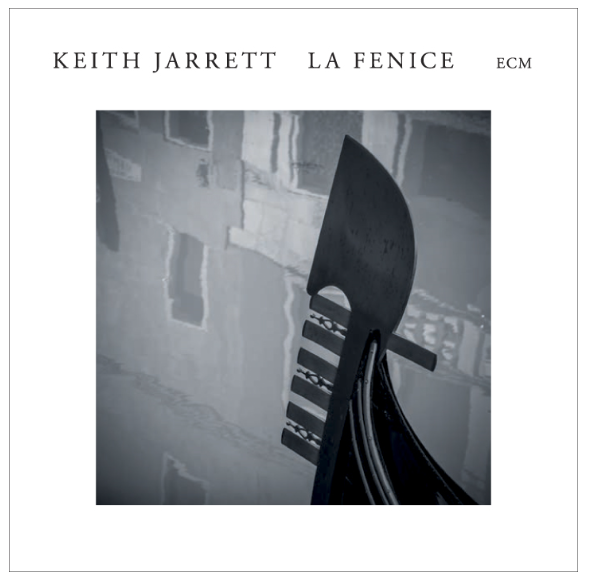JAZZ ALBUM REVIEWS IN THE AUSTRALIAN
In September, 2017 Eric Myers commenced reviewing jazz albums in the Review supplement of The Weekend Australian. All reviews in this folder are written by Myers.
jazz
American Counterpoint
Matthew Sheens
QFTF
Four stars
Published in the Weekend Australian, November 3, 2018
____________________
A brilliant musician from Adelaide, Matthew Sheens, presents here a powerful suite in four movements, performed by himself on acoustic piano, plus bass, drums and a string quartet. Recorded in New York, and featuring top US musicians including the outstanding double bassist John Patitucci, it’s short, extending to only half-an-hour of music. It’s a highly passionate work, packed with seriousness of purpose. Sheens, 31, has lived in the United States for almost 10 years, and regards this album as a meditation on that country’s recent period of homophobic violence and increasing racism. Part I was written after the Orlando massacre in Florida in 2016; Part II at home in Adelaide, where he reflected on the changes happening in America; Part III deals with the election of President Trump; and Part IV, written during the presidential debates, recapitulates and redefines some of the earlier themes. Often this work has the ambience of a classical piano concerto where Sheens’s keyboard virtuosity is apparent. At other times, there are relatively brief sections where the piano trio takes off and, with the rhythmical strength of jazz/rock fusion, builds up to tumultuous climaxes. When the temperature rises, Sheens uses insistent figures on the piano and in the strings to create a sense of urgency. This dissonance suggests that Sheens is deeply disturbed by the Trump phenomenon. In other sections Sheens clearly reveals his exceptional talent as a jazz improviser. It’s unusual for a jazz musician to attempt such a project, and hearing it has been an exhilarating experience.
Eric Myers
jazz
You Are There
Janet Seidel
La Brava
Four stars
Published in the Weekend Australian, November 10, 2018
____________________
Janet Seidel, who died in 2017, was known internationally as “the first lady of Australian jazz singing”. How come she was so successful? This posthumous album, featuring hitherto unreleased tracks, shows why. A superior exponent of American standards, Seidel sings with special attention to the written melody, eschewing vocal gymnastics. Her exquisite vibrato is on display throughout, the sort of quality vibrato one hears in great singers like Karen Carpenter, Kate Ceberano and Chet Baker. Also, Seidel well knew that, not being a strong piano improviser herself, her skills needed to be amplified by first-class backing musicians, who would push her into jazz territory. She plays judicious piano herself on four tracks here, but generally, for her studio sessions, the outstanding Sydney pianist Kevin Hunt is present. Here he is featured on eight of the 12 tracks, adding an element of unpredictability which adds immensely to the appeal of the album. David Seidel (bass) is on 10 tracks, and the late Chuck Morgan (ukelele and guitar) is on six. Seidel floats buoyantly over a cushion of swinging rhythmic feel. Given space in the music, the listener is drawn in to savour the lyrics, and as always, the inventiveness of the lyricists in the Great American Songbook is highlighted. Tunes such as The Very Thought of You, Darn That Dream, and I Got It Bad and That Ain’t Good are often played by jazz musicians as instrumentals, so it is salutary to be reminded of the words, as they inform the character of the songs which hopefully a jazz improviser will wish to reflect. In their solos, Andy Firth (alto sax, clarinet), Ben Jones (tenor sax), and Paul Furniss (clarinet) effortlessly maintain the intimate moods that Seidel is able to establish. Many of the compositions here deal with lost love, the most poignant being Seidel’s great version of the country music classic Tennessee Waltz. This album has already been released in Japan, where Seidel still enjoys a solid following, apparently to great acclaim.
Eric Myers
jazz
La Fenice
Keith Jarrett
ECM
Five stars
Published in the Weekend Australian, November 17, 2018
____________________
This double-album of 97 minutes was recorded live on July 19, 2006 at one of Venice’s classical music venues, Gran Teatro La Fenice, before an audience of 1,100. Jarrett plays eight spontaneous improvisations (Parts I-VIII), with a structured composition interleaved after Part VI, The Sun Whose Rays, from Gilbert & Sullivan’s operetta The Mikado. The concert closes with three encores which are structured: the traditional My Wild Irish Rose, the Victor Young standard Stella By Starlight and one of Jarrett’s compositions, Blossom. The critical issue in free improvisation is how the performer juxtaposes two impulses: familiarity and abstraction. Some performers in this genre, who reject the sounds of the past, luxuriate in whatever music emerges in the moment, even if it sometimes resembles little more than noise. The great strength of Jarrett’s music is that, even when it is atonal or far-out, it always sounds eerily familiar. Jarrett’s ability to balance those two impulses has enabled him to achieve both critical acclaim and mass appeal. He cannot disguise the fact that he is the living embodiment of the jazz tradition. The familiar signposts are everywhere: here is bebop, there is the jazz ballad; here are rich harmonic changes reminiscent of Bill Evans, there are simple passages, as touching as Chick Corea’s children’s songs. Part VIII is a blues. And so on. At other times, there are shimmering passages which might have been written by Ravel or Debussy. Add two other major qualities of Jarrett’s artistry: his tender touch at the keyboard (he is never heavy-handed, even at fortissimo) and his unparalleled attention to dynamics (he knows when high energy needs to revert to stillness), and you have a pianistic genius.
Eric Myers


